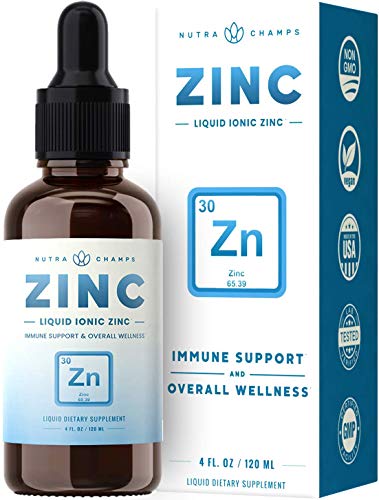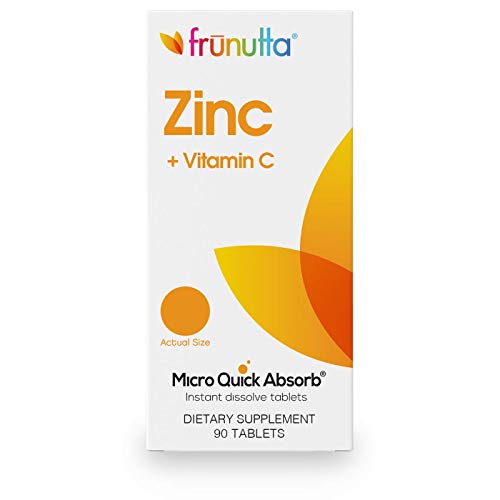Health authorities in Chile are no more cognizant how to halt the spread of COVID-19 coronavirus than anywhere else on the globe. With no vaccine in hand and the World Health Organization casting a blind eye towards nutritional prevention and therapy, all they know to do is issue ineffective instructions on hand washing, mask wearing and physical lockdown to prevent the spread of infection. The prediction for Chile is an “impending catastrophe.” Chile’s capital was placed on lockdown on May 5.
Scientists in Chile appeal to President Sebastian Pinera for a change in strategy. Preventive action is demanded. That means total destruction of Chile’s economy in exchange for a lockdown of its population.
As of May 31st there have been 1,054 deaths and 99,688 total confirmed cases with about 4000 more cases reported every day, out of a population of 18.7 million.
Winter just starting in Chile
 The Vitamin D Revoluti...
Best Price: $1.25
Buy New $10.69
(as of 08:00 UTC - Details)
But COVID-19 deaths are just getting started there. Winter is just beginning in South America, which is the cold and flu season. Already there are no more intensive care beds available in Chile. Winter in Chile runs from June to August and the coldest month is July when temperatures can drop as low as 3°C or 37°F.
The Vitamin D Revoluti...
Best Price: $1.25
Buy New $10.69
(as of 08:00 UTC - Details)
But COVID-19 deaths are just getting started there. Winter is just beginning in South America, which is the cold and flu season. Already there are no more intensive care beds available in Chile. Winter in Chile runs from June to August and the coldest month is July when temperatures can drop as low as 3°C or 37°F.
It is not the cold temperature per se that is a risk factor. Cold weather results in people wrapping their body with warm clothing to retain body heat. In doing so, they block skin exposure to solar radiation that produces vitamin D. Low vitamin D blood levels are associated with higher mortality from COVID-19 coronavirus infections.
Chileans who received a lot of sun exposure in summer should have stored 3 months of vitamin D in their liver to get through winter. Today with many adults working and living indoors, sun exposure is minimal.
An article published in CHILE TODAY indicates most Chileans (85%) are urban indoor dwellers and workers.
Chileans are also confused over warnings to avoid the sun to prevent skin cancer. While much of Chile is geographically an area of high solar ultraviolet radiation exposure, increased rates of skin cancer may be due to VITAMIN D DEFICIENCY, not over-exposure.
COVID-19 testing not needed
The reason why the world’s eyes turn towards Chile is they are the first country that intends to provide certificates to people who have recovered from COVID-19 so there is reassurance there is not risk of spread or reinfection of others. The World Health Organization opposes such measures. An estimated 42,727 Chileans have recovered from COVID-19 infection as of the date of this report and would be candidates for the certificate.
What is not needed is more COVID-19 testing. The purpose of testing is to identify high-risk groups and concentrate preventive and therapeutic efforts towards those groups. Public health authorities already know who is high risk: nursing home patients, dark-skinned individuals, subjects who are diabetic, obese or have autoimmune disorders. Twelve of every 100 Chileans are diabetic. At last count (2002) there were 26,864 Chileans in nursing homes with a projected 83,500 projected by 2025. So, the actual count is somewhere in between at the present time.
 NOW Supplements, Vitam...
Buy New $9.92 ($0.04 / Count)
(as of 04:43 UTC - Details)
NOW Supplements, Vitam...
Buy New $9.92 ($0.04 / Count)
(as of 04:43 UTC - Details)
The ignored remedy
The people in Chile are going to have to skirt around public health authorities and take preventive action on their own to save their own lives. Vitamin therapy is not in the public health protocol in Chile, nor anywhere else in the world.
An article in CHILE TODAY alerts Chileans they are deficient in sunshine vitamin D. Vitamin D is an essential nutrient (actually a hormone produced in the skin) that is needed to produce neutrophils, the first white blood cell type that responds to infections. Vitamin D plays a role in mortality rates. The article in CHILE TODAY says “CHILEANS NEED TO WORRY.”
Let the sun shine in
It is no coincidence that the groups at greatest mortal risk from COVID-19 coronavirus infection, blacks and nursing home patients, have very low vitamin D levels. Blacks because the melanin in their skin results in the need for six times more sunshine exposure to make the same amount of vitamin D as Caucasians, and nursing home patients by virtue of their indoor living have no direct exposure to life-giving solar radiation. There are many Chileans with dark skin pigmentation.
Latitude also dictates vitamin D production in the skin. Chile, a long, thin country on the western side of South America, runs from -31º to -71º latitude.
Low vitamin D levels are associated with breast cancer. One study showed over 70% of Chilean females have low vitamin D levels. Another study reveals a high prevalence of vitamin D deficiency among Chilean postmenopausal women even with normal sun exposure.
 Organic Zinc Sulfate L...
Buy New $18.95 ($4.74 / Fl Oz)
(as of 02:28 UTC - Details)
Organic Zinc Sulfate L...
Buy New $18.95 ($4.74 / Fl Oz)
(as of 02:28 UTC - Details)
The diet can never provide enough vitamin D to maintain health. Aside from sun lamps, the sun is the primary source of vitamin D.
Lockdown ensures disease
The public health system in Chile is not expected to break from its narrow ideas of quarantine and population lockdowns, which will assuredly destroy the economy and leave individuals with no work to return to after a lockdown. Lockdown depletes vitamin D, ensuring a rebound of cases and deaths once lockdown ceases.
To make matters worse, Chile is already in the grip of another chest infection, tuberculosis, that strikes 3,400.
Arsenic curse
Chile has another inborn curse: environmental exposure to arsenic. While there are efforts to reduce arsenic levels in drinking water, arsenic levels are still relatively high in plant foods in Chile.
Arsenic has adverse effects upon the human immune system, namely impaired immune surveillance and production of T-cells from the thymus gland. Low-grade exposure to arsenic can impair the human immune system. Arsenic interferes with a class of T-cells known as T-helper or T-memory cells, the key component in the development of antibodies against infectious disease. Without adequate active T-memory cells, antibody production by vaccines will likely be insufficient.
 Vitamin D3, Zinc and M...
Buy New $6.98
(as of 03:40 UTC - Details)
Vitamin D3, Zinc and M...
Buy New $6.98
(as of 03:40 UTC - Details)
Arsenic exposure is associated with lung infections. Arsenic in Chile’s drinking water is already associated with increased mortality from tuberculosis.
It is estimated 30-50% of Latin Americans don’t consume enough zinc.
Arsenic depletes zinc from soil and plant foods. A dated survey shows zinc deficiency affects all age groups in Chile. Arsenic is the archenemy of zinc
University of California researchers believe zinc (in particular zinc lozenges) may be an antidote against COVID-19 coronavirus infection. Human clinical trials are underway using zinc.
Provision of vitamins in Chile
Pharmacies are the main retail source for vitamins in Chile. Store shelves are likely to be depleted rapidly of natural remedies, namely vitamin D, vitamin C and zinc. Vitamin supplements are going to be a scarce commodity in this pre- and post-COVID-19 world.
A dietary supplement in powered food form, designed for elderly in Chile, was fashioned in 2005 and provides very modest amounts of vitamin C (15 mg per serving), zinc (1.5 milligrams) and vitamin D (30 international units). These low-level nutrients don’t even raise blood levels; 30 units of vitamin D don’t even equal 5 minutes of sunshine. The US requirement for vitamin C ranges from 90-200 milligrams. The Recommended Daily Allowance for zinc is 15 milligrams. So, the powdered food supplement simply ensures deficiency.
 EZ Melts Zinc Carnosin...
Buy New $21.99 ($0.37 / Count)
(as of 03:18 UTC - Details)
EZ Melts Zinc Carnosin...
Buy New $21.99 ($0.37 / Count)
(as of 03:18 UTC - Details)
While Chile has drastically reduced the problem of under-nutrition and stunting of childhood growth, it now has the same problem that other developed countries have: high-calorie malnutrition. Key nutrients are still in short supply in the Chilean diet.
WHO is greatest threat to human life
The World Health Organization is the greatest threat to human life on the planet at the current time, simply leading “the lambs to slaughter” by its draconian lockdowns, social distancing, ineffective public hygiene practices, and over-reliance upon vaccines. Hand washing would be more appropriate for enterovirus epidemics like polio or bacterial infections like tuberculosis.
Supplying vitamins to Chile
There are a number of organizations that may be able to help rescue Chile from this obvious catastrophe.
Vitamin Angels is a non-profit organization dedicated to providing Latin America and other countries with vitamins, many which are donated by producers and retailers of vitamin products.
 Frunutta Zinc 5 mg + V...
Buy New $14.99 ($0.17 / Count)
(as of 05:10 UTC - Details)
Frunutta Zinc 5 mg + V...
Buy New $14.99 ($0.17 / Count)
(as of 05:10 UTC - Details)
LS SAVAL is a Chilean-based pharmaceutical company that produces and distributes zinc in tablets and liquid (Alta Zinc) throughout Latin America, the latter which may be more convenient for young children and elderly adults to consume.
Sky Postal provides solutions for individual who attempt to ship vitamin supplements to Latin America.
This author has 1000 bottles of vitamin D supplements ready to ship to any philanthropic organization in Chile willing to deal with import duty at port of entry in Chile.




